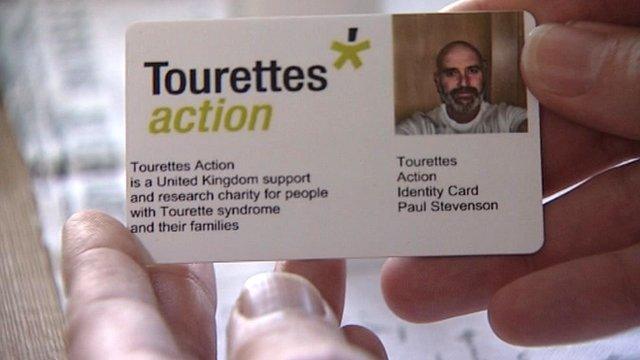Tourette's syndrome: Belfast mother calls for more support for sufferers
- Published
Tourette's syndrome: Belfast mother calls for more support for sufferers
Families with children who have Tourette's syndrome need more support to cope with a condition that is both physically and socially debilitating, a west Belfast mother has said.
The neurological disorder is characterised by repetitive involuntary movements and in some cases the person repeatedly swears.
Suzanne Lavery's son Daniel, 12, was diagnosed when he was 10.
Two years later, she has set up a support group in her church.
Ms Lavery said people are coming from as far as Drogheda in the Republic of Ireland to meet families who are experiencing similar problems.
Reaction
"We can't believe the reaction, clearly people need professional help," she said.
"They are travelling from Drogheda, east Belfast and Lisburn.
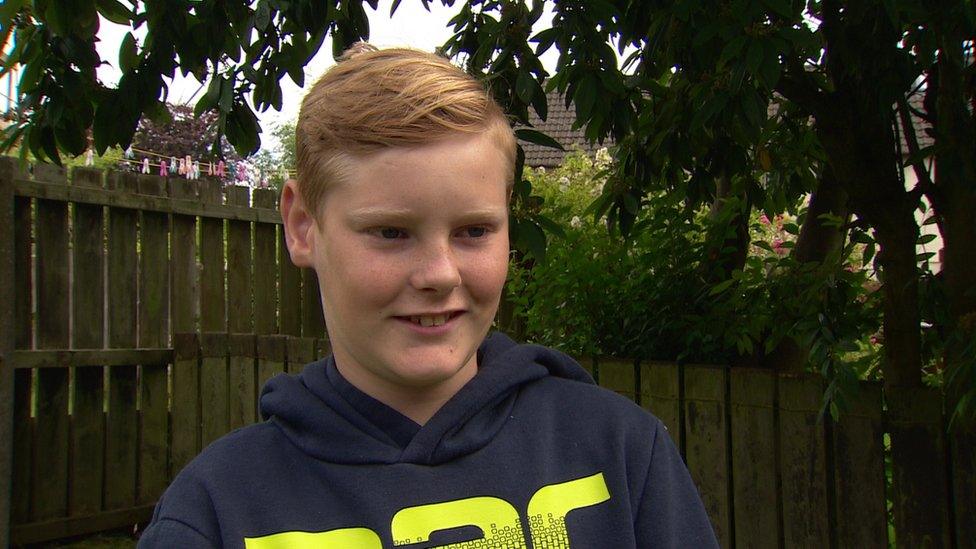
Daniel first showed symptoms of Tourette's syndrome when he was a toddler
"At this stage we rely on each other as parents but clearly people need more professional support."
Like most people who are diagnosed, Daniel began showing symptoms as a toddler, first with sudden, repetitive blinking.
"Then his head and shoulder began twitching - most recently he's started clearing his throat," his mother said.
Explosion
While on some days his symptoms are mild, they can sometimes be chronic, Ms Lavery said.
"Daniel, on a bad day, is blinking, sniffing, making noises in his throat," she said.
"His body is making involuntary movements called tics, his arm twitches.
"When he comes home from school he has a severe tic explosion because he then feels relaxed.
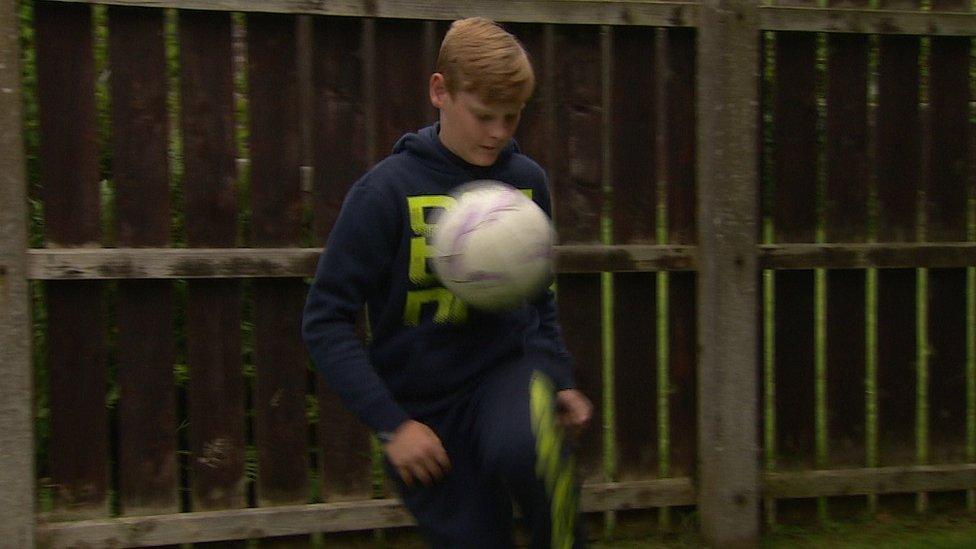
Daniel said he is not aware of his tics when he is playing football
"He's been suppressing them all day and then it all just comes out."
Daniel has just returned from playing football in the Foyle Cup.
He said the tics can make his neck hurt, but other times, particularly when playing football, he is not aware of the tics.
Letter
Daniel's love of football prompted his mother to contact former Everton goalkeeper Tim Howard.
He also has Tourette's and Daniel says knowing that has been a big help to him.
"He sent me a letter saying not to be worried, it is a thing in your life that won't go away but treat it as something that doesn't matter," Daniel said.
Although the cause of Tourette's syndrome is unknown, research points to abnormalities in particular parts of the brain.
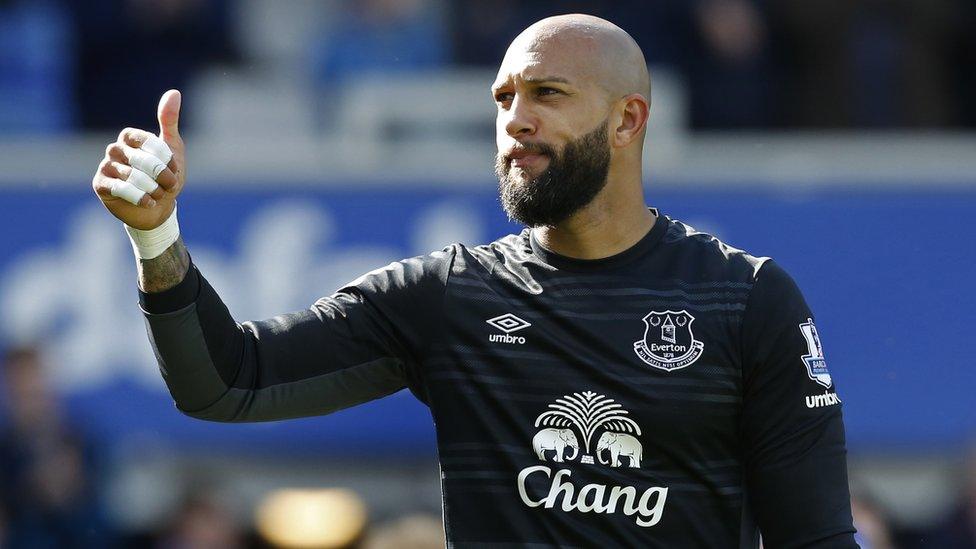
Former Everton goalkeeper Tim Howard has Tourette's syndrome and wrote to Daniel to reassure him
Deirdre Peake, a consultant Paediatric Neurologist at the Belfast Health and Social Care Trust, said experts think it is caused by a number of different genes.
"Tourette's is a neurological not a psychological condition and it is not a mannerism - children aren't just putting it on," she said.
"We haven't been able to identify the genes so we don't know how it works exactly.
"However, we do think it works on the transmitters on the brain which causes overactivity.
"Therefore you aren't able to put the brakes on the system and kids just can't stop making these involuntary movements."
Aware
Since May, the support group Tourette Alliance has had about 40 people meeting once a month.
Suzanne said the organisers quickly realised they had identified a wider issue when people began getting in touch.
"It was really difficult to get support and help for Tourette's as there are limited Tourette's specialists within Northern Ireland," she said.
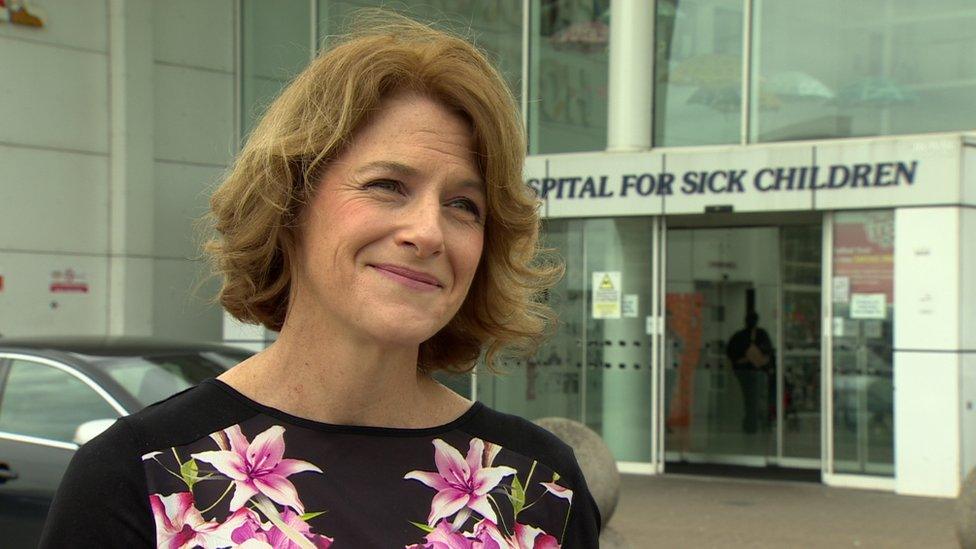
Deirdre Peake said more people know about the condition and GPs are more aware of how to diagnose it
"Any help we have received has been from other parents.
"Without that support we have found it difficult to understand our children and to understand what Tourette's is about in order to help them."
The tic clinic at the Royal Belfast Hospital for Sick Children is the only such clinic in Northern Ireland.
According to Ms Peake, there has not been an increase in cases - people, including GPs, are just more aware of how to diagnose the condition.
"There are two types of treatments" she said.
"It's a combination of psychological treatments such as cognitive behavioural therapy and habit reversal therapy.
"The majority of children don't require medication, just the more severe cases who perhaps are too young to use behavioural therapies."
A conference on Tourette's syndrome will take place in Lisburn, County Antrim, on 5 and 6 August.
- Published6 October 2014
